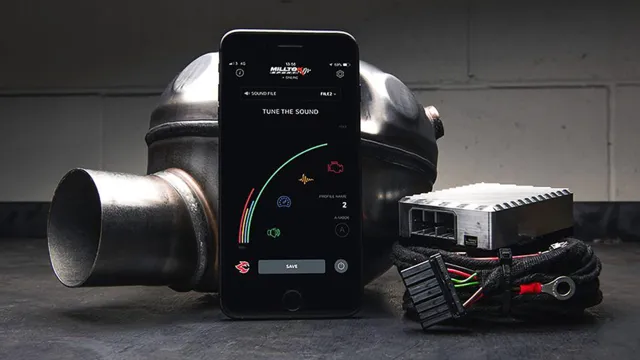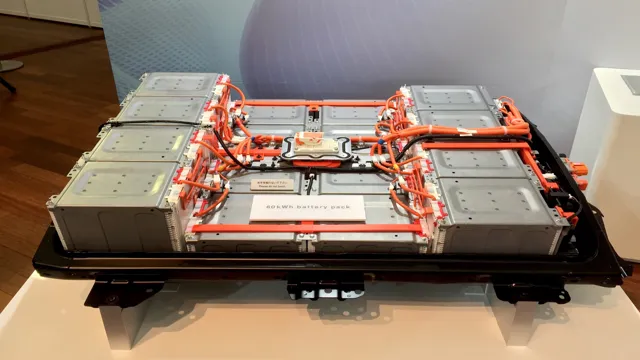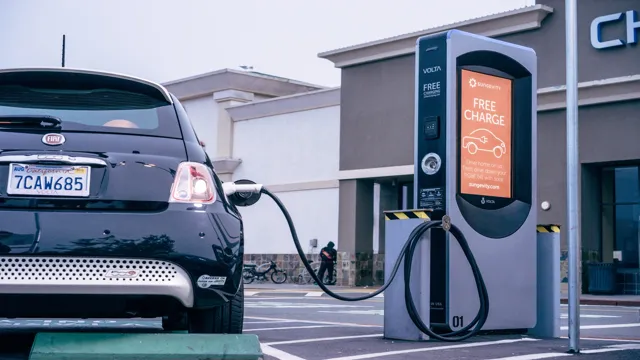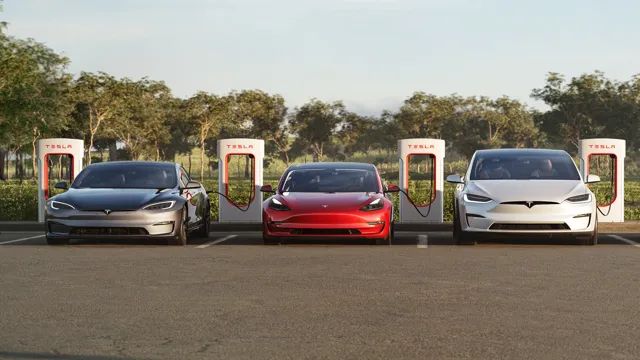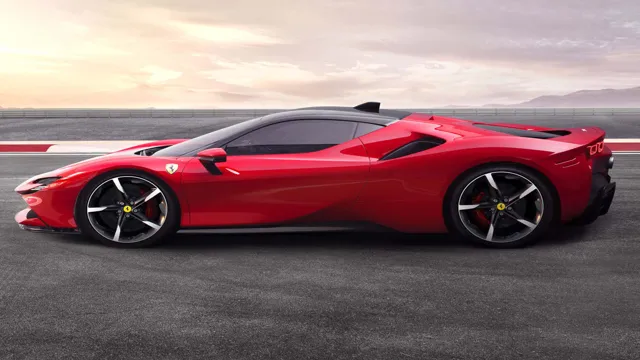Busting the Myths: Uncovering the Truth About the Fake News Surrounding Electric Cars
Electric cars have been gaining popularity in recent years as concerns about climate change and the environment have become more prevalent. However, along with their rising popularity, fake news and myths about electric cars have also spread like wildfire. This misinformation has caused confusion and skepticism for those looking to make the transition to electric vehicles.
With so much conflicting information out there, it can be difficult to know what to believe. But fear not! In this blog, we’ll be busting some of the most common fake news about electric cars and setting the record straight. So, if you’re curious about electric vehicles and want to learn the truth about them, keep reading!
The Problem with Fake News
Fake news has become a major issue for those who are seeking accurate information about electric cars. The problem with fake news is that it can be incredibly difficult to detect, and it can spread like wildfire. In many cases, fake news about electric cars has been spread by vested interests who are keen to discredit the technology.
Some common examples of fake news include claims that electric cars are unreliable, that they don’t have enough range to be practical, and that they are more expensive than traditional gas-powered vehicles. The reality is that electric cars are becoming increasingly popular, and they have many advantages over traditional vehicles including lower running costs, reduced environmental impact, and a smoother, quieter driving experience. It’s important to be vigilant when consuming news about electric cars, and to seek out reputable sources to ensure that you are getting accurate information.
Exposure to Misinformation
One of the biggest problems with fake news is the exposure to misinformation it causes. It’s easy for people to stumble upon an article that seems believable or aligns with their beliefs without realizing it’s not entirely accurate. In some cases, this misinformation can have serious consequences.
For example, during the COVID-19 pandemic, fake news about miracle cures or conspiracy theories about the origins of the virus have caused people to take dangerous risks or ignore public health regulations. It’s important that we take the time to fact-check information before sharing it and rely on credible sources for our news. By doing so, we can limit the spread of fake news and protect ourselves and our communities from the harmful effects of misinformation.
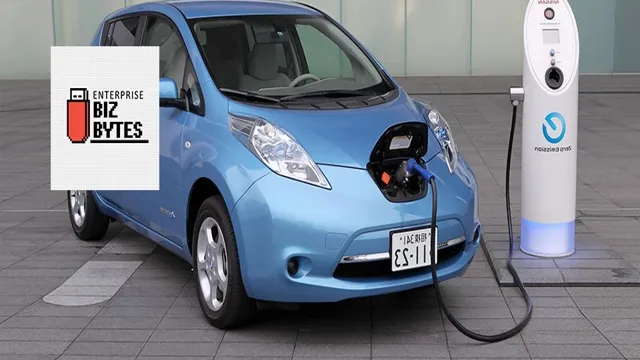
Impact on Public Perception
Fake news has become one of the most significant problems in the modern era of digitization and instant access to information. The problem with fake news is that it can significantly impact public perception, leading to a distorted view of reality. False information can manipulate people’s opinions, cause confusion, and stir up unnecessary controversy.
As a result, it can lead to mistrust in legitimate sources of information and create a more polarized society. To prevent the spread of fake news, it is essential to have a critical sense of awareness while consuming any information on the internet. We must educate ourselves on how to distinguish facts from opinions and identify reliable sources.
If we can do that, we can limit the negative impact of fake news and promote a more objective understanding of the world around us.
Debunking the Myths
With the growing popularity of electric cars, there has been a surge in misinformation about them on the internet. Fake news on electric cars is rife with myths that discourage people from buying them. These myths include the notion that electric cars are bad for the environment, are not reliable, have limited range, and are more expensive than gasoline cars.
However, these are simply not true. In fact, electric cars are much better for the environment as they produce zero emissions. They are also increasingly reliable as the technology improves, and they have a range that can cover an average daily commute.
Additionally, the cost of electric cars is dropping rapidly, making them more affordable than ever before. It is crucial that we debunk these myths and educate people about the many benefits of electric cars in order to encourage a transition to more sustainable transportation.
Myth #1: Electric Cars are More Expensive
Electric Cars One of the biggest myths about electric cars is that they are more expensive than traditional gasoline vehicles. However, this is not necessarily true. While the upfront cost of an electric car may be higher, there are numerous factors that can make them more affordable in the long run.
For example, electric cars require far less maintenance than their gasoline counterparts, which can save you money over time. They are also more efficient, which means you will spend less money on fuel. In addition, there are numerous incentives available for electric car owners, such as tax credits and rebates, that can help offset the initial cost.
Therefore, it’s important not to dismiss electric cars based solely on their initial price tag, as they can actually be a cost-effective option in the long run.
Myth #2: Electric Cars are Unreliable
Electric Cars Electric cars have long been the subject of myths and misconceptions, one of which is that they are unreliable. However, this could not be further from the truth. In fact, electric cars are highly reliable and require very little maintenance compared to conventional gasoline cars.
This is because they have fewer moving parts, which means there are fewer things that can go wrong. Additionally, electric motors have fewer parts that require lubrication, and they don’t need oil changes, which are common sources of issues in traditional cars. Moreover, the batteries that power electric cars are designed to last for years, and most manufacturers offer warranties of up to 8-10 years on these batteries.
Overall, electric cars are not only reliable, but they are also better for the environment, cheaper to run and maintain, and more enjoyable to drive. So, if you’re looking for a reliable, efficient and eco-friendly car, an electric car might be the perfect choice for you.
Myth #3: Electric Cars are Bad for the Environment
Electric Cars Electric cars have gained popularity in recent years, with more and more people looking for eco-friendly alternatives to traditional gas-powered vehicles. However, there are still many myths surrounding electric cars, such as the belief that they are bad for the environment. This couldn’t be further from the truth.
Electric cars have a significantly lower carbon footprint than gasoline-powered cars, and their emissions are localized to power plants rather than urban areas. Additionally, the batteries in electric cars can be recycled, reducing their environmental impact even further. Another common myth about electric cars is that they don’t have enough range to be practical for everyday use.
However, this too is a misconception. Modern electric cars can travel hundreds of miles on a single charge and are equipped with fast-charging technology that makes it easy to top up the battery on longer trips. In short, electric cars are a great choice for anyone looking to reduce their carbon footprint and live a more eco-friendly lifestyle.
So why not join the electric revolution today?
Benefits of Electric Cars
Fake news on electric cars has been a growing concern among those interested in sustainable transportation. While some may claim that electric cars have limited range or are not as reliable as traditional gasoline-powered vehicles, these arguments are often misguided or outright false. In reality, electric cars offer a range of benefits, from lower maintenance costs to reduced emissions and noise pollution.
Additionally, as technology continues to improve, we can expect electric cars to become more affordable and accessible to a wider range of consumers. To combat fake news on electric cars, it is important to seek out reliable sources of information and stay informed about the latest developments in the industry. By doing so, we can separate fact from fiction and make informed decisions about how we choose to power our vehicles in the future.
Lower Operating Costs
If you’re looking for a car that will help you save money in the long run, then electric cars might just be what you need. One of the significant benefits of electric vehicles is their lower operating costs. Unlike traditional gasoline-powered vehicles, electric cars don’t require regular oil changes, tune-ups, or even air filter replacements.
This can lead to significant savings over time, especially since electricity is generally cheaper than gas. Additionally, electric cars have fewer moving parts than their gasoline-powered counterparts, which means there’s less wear and tear on the vehicle overall, reducing maintenance costs even further. Not only can you save on maintenance, but you can also take advantage of federal and state tax credits, as well as lower insurance rates.
With all these cost-saving benefits, electric cars are an excellent investment for anyone looking to save money in the long run. So why not consider going electric?
Reduced Carbon Footprint
Electric cars have become incredibly popular due to their many benefits, including a reduced carbon footprint. These cars primarily run on electricity, meaning they do not emit harmful pollutants into the environment like traditional gas-powered vehicles. The batteries used in these cars are rechargeable and can be charged from various sources such as charging stations or even a regular outlet at your home.
Using electric cars helps reduce greenhouse gas emissions and combat climate change. Transitioning to electric cars also saves you money in the long run as they are generally cheaper to maintain and operate. Additionally, they are incredibly quiet and provide a smooth driving experience.
Overall, investing in an electric car is not only an environmentally conscious decision but also a smart financial decision, making it a win-win situation for you and the planet.
The Future of Electric Cars
Fake news on electric cars has been a persistent problem for years. Rumors and hoaxes have spread rapidly about the supposed dangers of electric vehicles, ranging from the belief that their batteries pose a serious fire hazard to the notion that they’re actually worse for the environment than traditional fossil-fuel cars. The truth is that these claims are largely unfounded and based on outdated or disingenuous information.
In fact, electric cars are quickly becoming the future of sustainable transportation, driven by advancements in battery technology and falling costs. As more and more people make the switch to EVs, it’s important to be vigilant about the sources of information we rely on and to seek out trustworthy, accurate reporting from reputable sources. By doing so, we can help combat the spread of fake news and work towards a cleaner and greener future.
Conclusion
In conclusion, it’s important to remember that not everything you hear about electric cars is true. Fake news, fueled by misinformation and personal biases, can easily spread online and misinform the public. It’s up to us to fact-check the sources we rely on for information and approach new technologies with an open mind.
So next time you hear someone spreading fake news about electric cars, remember: just because it’s viral doesn’t mean it’s true.”
FAQs
What are some examples of fake news related to electric cars?
There have been claims that electric cars are not environmentally friendly because they are powered by coal-generated electricity, or that electric car batteries have a short lifespan and need to be replaced frequently. However, these claims are misleading or outright false.
How can I determine if a news article about electric cars is real or fake?
Look for sources that are reputable and unbiased, and fact-check the claims made in the article. Be wary of articles that contain sensational headlines or make claims that seem too good (or bad) to be true.
What impact does fake news have on the electric car industry?
Fake news can create confusion and skepticism among potential electric car buyers, which may slow adoption of the technology. It can also damage the reputation of electric car manufacturers and harm the industry as a whole.
What can be done to combat fake news about electric cars?
Fact-checking organizations can work to identify and correct false claims, while electric car manufacturers can provide accurate information to consumers through their marketing materials and websites. Consumers can also take steps to educate themselves about electric cars and learn to recognize fake news.
